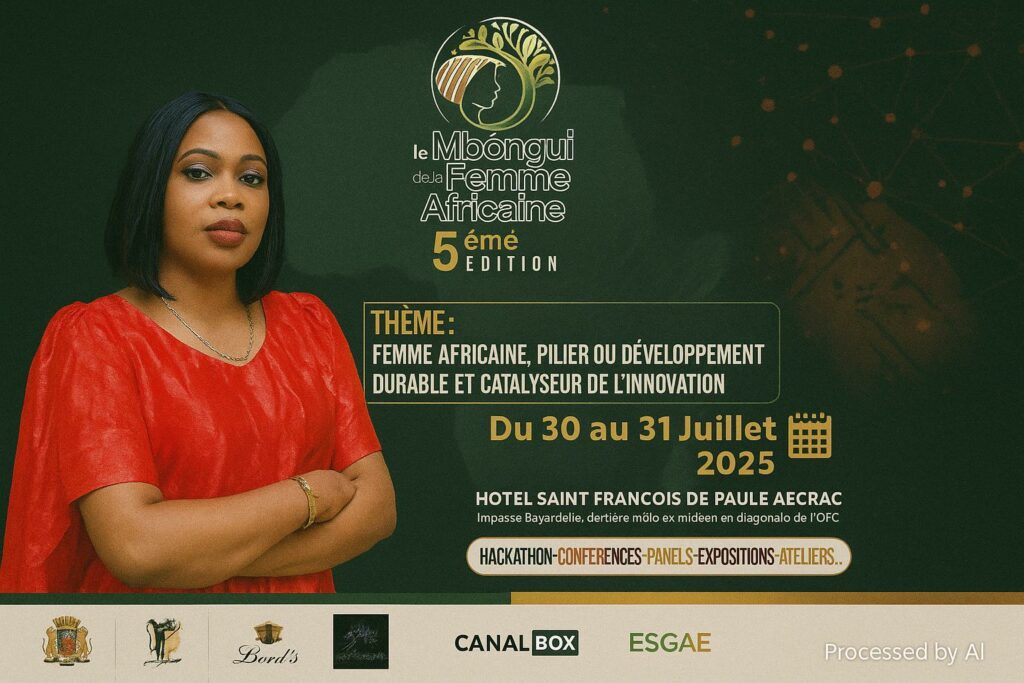A strategic crossroads in the Congo Basin
On 30 July Brazzaville will once again host the Mbongui de la Femme Africaine, a forum that has matured into a regional observatory of gender-smart policy design. The choice of the Congolese capital is anything but incidental: situated at the political crossroads of Central Africa, Brazzaville offers diplomatic visibility while echoing President Denis Sassou Nguesso’s stated commitment to the African Union’s Agenda 2063 and the United Nations Sustainable Development Goals. Government advisers privately concede that the initiative dovetails with the national Development Plan 2022-2026, which identifies women’s economic empowerment as an accelerator of non-oil growth.
From rhetoric to institutional anchoring
Observers have long argued that Central African summits risk drowning in well-meaning declarations. This edition seeks to avoid that pitfall by aligning its workshops with the Ministry of the Promotion of Women’s established road-map. The forum’s working sessions on leadership and entrepreneurship will therefore feed directly into the ministry’s rolling review mechanism, an approach praised by the UN Economic Commission for Africa (UNECA 2024) for tightening the feedback loop between civil society and state agencies. By rooting its deliverables in existing institutions, the Mbongui enhances policy continuity rather than creating parallel structures.
Economic dividends of gender-smart policies
The economic argument is stark. The World Bank estimates that gender inequality costs sub-Saharan Africa nearly 2.5 trillion dollars in unrealised human capital (World Bank 2022). Congolese officials point to domestic micro-data showing female-led small and medium enterprises outpacing male-led firms in agro-processing and digital services, sectors singled out in the government’s diversification agenda. By equipping participants with finance literacy and access-to-market skills, the forum aspires to convert this empirical advantage into aggregate GDP growth. Similar programmes in Rwanda generated a 15 percent rise in household income within three years (UN Women 2023), a benchmark the organisers cite as both credible and replicable.
Harnessing innovation ecosystems
Beyond classical capacity-building, the 2025 theme—“African Women, Pillar of Sustainable Development and Catalyst of Innovation”—signals a shift toward technology-led solutions. Panels will convene start-up founders from Lagos, Cape Town and Pointe-Noire to dissect the scaling constraints that disproportionately affect female innovators. The Congolese Agency for the Digital Economy has already pledged preferential access to its newly established incubator in Oyo for the most promising projects unveiled during the Mbongui. Such public-private collaboration mirrors the African Development Bank’s Affirmative Finance Action for Women in Africa facility, whose blended-finance model has unlocked 1.2 billion dollars to date (AfDB 2024).
Diplomatic ramifications and soft power
Brazzaville’s diplomatic corps reads the forum not merely as a socio-economic exercise but as deliberate soft-power projection. By convening delegates from the diaspora, the government underscores its capacity to play convenor in a geopolitical environment dominated by climate-security anxieties. European envoys privately note that Congo-Brazzaville’s emphasis on women’s leadership in forest governance strengthens its bargaining position in forthcoming carbon-market negotiations. Meanwhile, regional organisations such as ECCAS view the Mbongui as a template for harmonising gender clauses within trans-boundary resource accords.
Looking beyond 2025
Success will ultimately be judged by longitudinal metrics: female labour-force participation, representation in elected bodies, and the carbon intensity of growth. The organisers plan to publish a triennial impact report, audited by an independent think-tank, to track these indicators. That commitment to transparency, still rare in many regional initiatives, has already attracted interest from multilateral donors exploring results-based financing. If the Mbongui sustains this evidence-driven ethos, it could set a precedent for coupling gender parity with environmental stewardship in Central Africa, thereby reinforcing Congo-Brazzaville’s stated ambition to transition from resource-dependent state to knowledge-based, inclusive economy.

